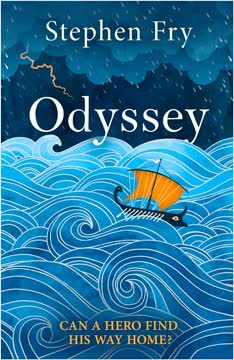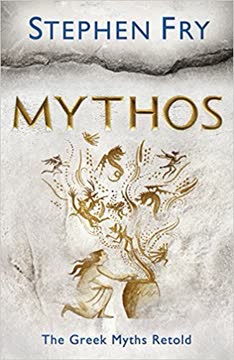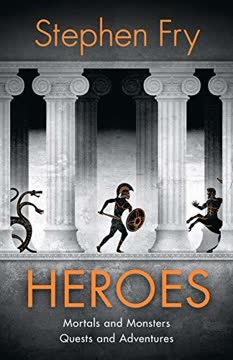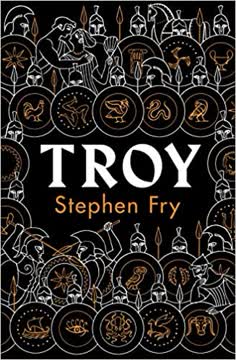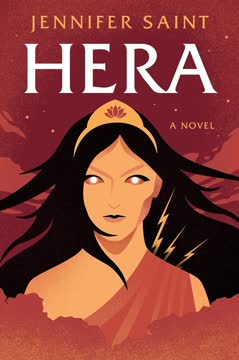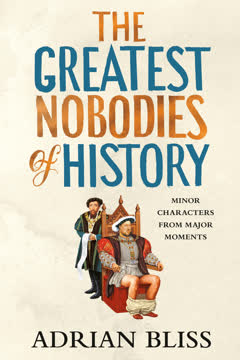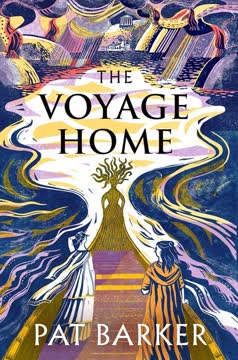Plot Summary
Smoke Over Troy
The city of Troy burns, its people slaughtered or enslaved, and the Greeks, after ten years of war, finally claim their prize. Yet the victory is tainted by atrocities—Ajax's violation of Cassandra in Athena's temple, Neoptolemus's murder of Priam and sacrifice of Polyxena, and the Greeks' general impiety. The gods, especially Athena and Hera, are appalled by the Greeks' behavior, and a sense of foreboding hangs over the victors. The war's end is not a triumph but a prelude to suffering, as the Greeks prepare to return home, unaware that divine retribution and the consequences of their own actions will haunt their journeys.
Gods and Mortal Wrath
The gods, childish and capricious, debate the Greeks' fate. Athena, disgusted by the Greeks' sacrilege, demands punishment, while Hera seeks vengeance against the Trojans, especially Aeneas, fearing his descendants will destroy her beloved Carthage. Zeus, weary of divine squabbles, reluctantly allows storms to scatter the Greek fleets. The mortals, oblivious to the cosmic forces at play, set sail, their fates already sealed by the whims and grudges of the immortals. The gods' interventions, both petty and profound, ensure that the journey home will be as perilous as the war itself.
Storms and Shipwrecks
As the Greeks depart, storms unleashed by Poseidon and Aeolus devastate their ships. Agamemnon, Menelaus, Odysseus, and Ajax are all caught in the chaos. Some, like Nestor and Diomedes, escape quickly, but most are driven far from home. Menelaus and Helen are blown to Egypt, Agamemnon's fleet is battered but survives, and Odysseus's ships are scattered, setting the stage for his long ordeal. The gods' anger, especially Poseidon's, ensures that the sea is no safe passage. The Greeks' longing for home is met with loss, confusion, and the first taste of the suffering to come.
The Cursed Homecomings
The Greeks' returns are fraught with tragedy. Agamemnon, haunted by the sacrifice of his daughter Iphigenia, is murdered by his wife Clytemnestra and her lover Aegisthus upon his return. Cassandra, the doomed prophetess, is killed alongside him. Menelaus and Helen wander for years before reaching Sparta. The house of Atreus is cursed, its cycle of vengeance and bloodshed continuing through Orestes and Electra. The gods' justice is harsh, and the cost of victory at Troy is paid in suffering, madness, and the unraveling of families.
Dido's Burning Heart
Aeneas, the pious Trojan prince, is driven by storms to Carthage, where Queen Dido welcomes him. Their love, orchestrated by the gods, is passionate but doomed. Jupiter reminds Aeneas of his destiny to found Rome, and Mercury urges him to leave. Dido, abandoned, curses Aeneas and takes her own life, sealing enmity between Carthage and Rome. Aeneas's journey is marked by loss and sacrifice, his personal desires always subordinate to fate. The gods' manipulations leave mortals broken, and Dido's pyre burns as a symbol of love destroyed by destiny.
Blood in Mycenae
In Mycenae, Clytemnestra and Aegisthus rule after murdering Agamemnon. Orestes, raised in exile, returns with his loyal cousin Pylades and sister Electra. Driven by Apollo's oracle and the demands of justice, Orestes kills Aegisthus and, with Electra's urging, his own mother. The Furies descend upon him, tormenting him with guilt and madness. The gods debate his fate, and Athena proposes a trial in Athens, marking a shift from blood vengeance to civic justice. The curse of the house of Atreus nears its end, but not without deep scars.
Penelope's Waiting Game
On Ithaca, Penelope waits for Odysseus, fending off a horde of suitors who consume her household and pressure her to remarry. She weaves and unweaves a shroud, delaying her decision with wit and patience. Her son Telemachus grows up in uncertainty, longing for his father and resenting the suitors' arrogance. The palace is a place of tension and decay, but Penelope's intelligence and quiet strength keep hope alive. Her loyalty becomes legendary, a beacon in the darkness of absence and doubt.
Telemachus Seeks His Father
Inspired by Athena, who appears as Mentor and Mentes, Telemachus sets out to find news of his father. He visits Nestor in Pylos and Menelaus and Helen in Sparta, learning of Odysseus's cunning and the hardships of the returning Greeks. Along the way, he matures, gaining confidence and allies. The journey is as much about self-discovery as it is about finding Odysseus. Telemachus's return to Ithaca is shadowed by the suitors' plots, but he brings with him a new resolve and the seeds of hope for his family's restoration.
Calypso's Island Prison
Odysseus, shipwrecked and alone, is held captive for years by the nymph Calypso on her idyllic island. Though offered immortality and comfort, he yearns only for home and Penelope. The gods, moved by Athena's pleas, order his release. Hermes delivers the message, and Calypso, heartbroken, helps Odysseus build a raft. His departure is bittersweet, a testament to the power of nostos—the longing for home. Even paradise is a prison when love and duty call elsewhere.
Monsters and Temptations
Odysseus's journey is a tapestry of peril and temptation. He and his men encounter the Lotus-Eaters, whose fruit erases memory and desire for home; the Cyclops Polyphemus, whom Odysseus blinds, incurring Poseidon's wrath; the Laestrygonians, who destroy all but one ship; and the enchantress Circe, who turns men into swine. With Hermes's help, Odysseus resists her magic, and she becomes his ally. The crew faces the Sirens' song, the twin terrors of Scylla and Charybdis, and the fatal temptation of Helios's sacred cattle. Each trial tests Odysseus's cunning, leadership, and humanity, and each loss deepens his longing for home.
The Underworld's Prophecy
Guided by Circe, Odysseus descends to the underworld to seek the prophet Tiresias. There, he meets the shades of his mother, Agamemnon, Achilles, and others, learning of the dangers ahead and the necessity of restraint. Tiresias warns him not to harm the cattle of the sun and foretells a final journey to appease Poseidon. The encounter with the dead is haunting and transformative, filling Odysseus with sorrow, humility, and a deeper understanding of mortality and destiny.
The Bow and the Bed
Odysseus, returned to Ithaca in disguise, reunites with his son Telemachus and loyal servants Eumaeus and Philoetius. Penelope, still wary, devises a contest: she will marry the man who can string Odysseus's bow and shoot an arrow through twelve axe heads. The suitors fail; Odysseus, still disguised, succeeds. Penelope tests him further with the secret of their olive-tree bed, and only then is she convinced of his identity. Their reunion is tender and hard-won, a reward for years of faith and suffering.
Vengeance in the Hall
With Telemachus and his loyal allies, Odysseus slaughters the suitors in a brutal reckoning. The violence is both justice and catharsis, ending years of humiliation and threat. The household is purged, and order is restored, but not without cost. The cycle of vengeance echoes the tragedies of Mycenae, but here, the gods and fate seem to favor restoration. Penelope and Odysseus are finally reunited, and Ithaca is at peace—at least for now.
The Judgment of Orestes
Orestes, tormented by the Furies for killing his mother, seeks refuge in Athens. Athena convenes a trial on the Areopagus, where arguments for vengeance and mercy are weighed. The vote is tied, and Athena casts the deciding vote for acquittal, transforming the Furies into the Eumenides, protectors of justice. This marks a turning point from endless cycles of blood to the rule of law and reason, a foundation for civilization and the future of Greece.
Siblings and Sacrifice
Orestes and Pylades, commanded by Apollo, journey to Tauris to retrieve the statue of Artemis. There, they are captured and nearly sacrificed by Orestes's long-lost sister Iphigenia, who was saved by Artemis years before. Recognition and reunion follow, and together they escape, bringing the statue to Athens. The family, once shattered by betrayal and vengeance, is restored. The curse of the house of Atreus is finally broken, and the siblings find peace and new beginnings.
The End of the Curse
With the Furies appeased and the house of Atreus restored, Orestes marries Hermione, and Pylades marries Electra. The gods withdraw from direct interference, and mortals begin to shape their own destinies. The world moves from mythic cycles of violence to the beginnings of civic order and justice. The stories of Odysseus, Orestes, and their kin become the foundation myths of Greece and Rome, echoing through history as lessons in suffering, endurance, and the possibility of redemption.
Home at Last
Odysseus, after years of wandering, suffering, and loss, is finally home. He is reunited with Penelope and Telemachus, and peace returns to Ithaca. Yet the prophecy of Tiresias lingers—Odysseus must undertake one final journey to appease Poseidon. The epic closes with the sense that homecoming is both an end and a beginning, that the longing for home (nostos) is universal and eternal. The gods recede, and mortals inherit a world shaped by their choices, their stories, and their longing for meaning and belonging.
Characters
Odysseus
Odysseus is the quintessential hero of intellect and endurance, defined by his wit, adaptability, and relentless longing for home. Husband to Penelope and father to Telemachus, he is both a master strategist and a deeply flawed man, whose pride and curiosity often lead to suffering. His relationships—with gods like Athena, with his loyal servants, and with the women he encounters—reveal a complex psyche torn between duty, desire, and the burdens of leadership. Over the course of his journey, Odysseus is humbled by loss, tested by temptation, and ultimately redeemed by love and perseverance. His homecoming is both a personal victory and a meditation on the costs of war, the power of memory, and the meaning of identity.
Penelope
Penelope embodies patience, intelligence, and quiet strength. Left alone for twenty years, she fends off suitors with wit and subtlety, weaving and unweaving a shroud to delay remarriage. Her love for Odysseus is steadfast but not naive; she tests him upon his return, demanding proof of his identity. Penelope's resilience sustains Ithaca through chaos, and her reunion with Odysseus is a testament to the endurance of hope and the power of shared secrets. She is both a symbol of constancy and an active agent in her own story, shaping the fate of her household with grace and resolve.
Telemachus
Telemachus grows from a passive, uncertain youth into a decisive and courageous man. His journey to find news of his father is also a quest for selfhood and agency. Guided by Athena and inspired by stories of heroism, he learns to assert himself against the suitors and to trust in his own judgment. His reunion with Odysseus is both emotional and transformative, as father and son join forces to reclaim their home. Telemachus's development mirrors the transition from mythic childhood to adult responsibility, embodying the hope of renewal and the continuity of legacy.
Athena
Athena, goddess of wisdom and war, is Odysseus's most devoted divine ally. She intervenes repeatedly, guiding Telemachus, inspiring Penelope, and orchestrating Odysseus's return. Her relationship with mortals is both affectionate and manipulative, reflecting the gods' ambivalence toward humanity. Athena's advocacy for justice, especially in the trial of Orestes, marks her as a force for order and civilization. She represents the ideal of reasoned action, yet her interventions also highlight the limits of mortal agency in a world still shaped by divine whims.
Clytemnestra
Clytemnestra is driven by grief and rage over Agamemnon's sacrifice of their daughter Iphigenia. Her murder of Agamemnon and Cassandra is both an act of vengeance and a perpetuation of the family curse. As a ruler with Aegisthus, she is both powerful and isolated, her love for her children twisted by guilt and fear. Her death at the hands of Orestes and Electra is both justice and tragedy, and her legacy is one of suffering, complexity, and the destructive power of unresolved pain.
Orestes
Orestes is shaped by exile, loss, and the demand for vengeance. Urged by Apollo and Electra, he kills his mother and her lover, only to be pursued by the Furies and driven to madness. His journey to Athens and the trial before Athena mark a turning point from blood vengeance to civic justice. Orestes's story is one of psychological torment, moral ambiguity, and the possibility of redemption through law and compassion. His relationships—with Pylades, Electra, and Iphigenia—anchor him in love even as he is buffeted by fate.
Electra
Electra is consumed by grief and anger over her father's murder. She becomes the driving force behind Orestes's return and the plot to kill Clytemnestra and Aegisthus. Her loyalty to her family and her willingness to embrace violence for justice make her both admirable and unsettling. Electra's role in the cycle of vengeance is pivotal, and her eventual marriage to Pylades offers a glimpse of healing after trauma.
Pylades
Pylades is Orestes's closest confidant and ally, often described as the Patroclus to Orestes's Achilles. His unwavering support, even in the face of danger and exile, provides Orestes with the strength to fulfill his grim duty. Pylades's love for Orestes is deep and selfless, and his eventual union with Electra symbolizes the restoration of family and the end of the curse.
Agamemnon
Agamemnon is a figure of authority, pride, and fatal error. His decision to sacrifice Iphigenia for favorable winds sets in motion the cycle of vengeance that destroys his family. Returning from Troy, he is murdered by Clytemnestra and Aegisthus, his death a symbol of the costs of war and the dangers of hubris. In the underworld, he warns Odysseus of the perils of trust and the fragility of human happiness.
Dido
Dido, queen of Carthage, is a figure of strength, generosity, and tragic love. Her affair with Aeneas, orchestrated by the gods, brings her joy and ruin. Abandoned by Aeneas, she curses him and takes her own life, her death marking the beginning of enmity between Carthage and Rome. Dido's story is a meditation on the power of love, the cruelty of fate, and the destructive consequences of divine intervention.
Plot Devices
Divine Intervention and Fate
The narrative is driven by the constant interference of the gods, whose personal grudges, rivalries, and affections determine the fates of mortals. Storms, shipwrecks, and miraculous rescues are all orchestrated from Olympus, blurring the line between chance and destiny. The gods' interventions serve both as plot catalysts and as commentary on the unpredictability of life. The tension between human agency and divine will is a central theme, with mortals struggling to assert control in a world governed by forces beyond their understanding.
Cycles of Vengeance and Justice
The stories of Agamemnon, Clytemnestra, Orestes, and Electra are structured around cycles of revenge, where each act of violence begets another. The introduction of the trial by jury in Athens, presided over by Athena, marks a narrative and thematic shift from personal vengeance to civic justice. This transition reflects the evolution of Greek society and the emergence of law as a means of resolving conflict, offering hope for an end to endless retribution.
Disguise, Recognition, and Testing
Disguise is a recurring device, most notably in Odysseus's return to Ithaca. His ability to conceal and reveal his identity allows him to test the loyalty of his family and servants, and to outwit his enemies. Penelope's tests for Odysseus, and his for her, underscore the importance of knowledge, trust, and shared secrets in human relationships. Recognition scenes are charged with emotion, serving as climaxes of both plot and character development.
Prophecy and Foreshadowing
Prophecies, dreams, and omens pervade the narrative, shaping characters' choices and heightening suspense. Tiresias's warnings, Cassandra's doomed foresight, and Penelope's dreams all serve to foreshadow key events and to explore the limits of human understanding. The tension between foreknowledge and free will is a source of both tragedy and hope.
Narrative Structure and Storytelling
The Odyssey and its related tales employ a complex narrative structure, with flashbacks, embedded stories, and multiple perspectives. Odysseus's recounting of his adventures to the Phaeacians, the stories told by Menelaus and Helen, and the trial of Orestes all create layers of meaning and invite reflection on the nature of storytelling itself. The act of telling and retelling becomes a means of preserving memory, shaping identity, and seeking understanding in a chaotic world.
Analysis
Stephen Fry's Odyssey is a masterful retelling that breathes new life into the ancient epic, making its themes and characters resonate for modern readers. At its heart, the Odyssey is a meditation on longing—for home, for justice, for meaning—and on the endurance required to survive suffering and loss. Fry's adaptation foregrounds the psychological complexity of its heroes and heroines, exploring the costs of war, the ambiguities of vengeance, and the redemptive power of love and forgiveness. The transition from divine retribution to human justice, embodied in the trial of Orestes, reflects the evolution of civilization itself, as societies move from cycles of violence to the rule of law. The gods, once omnipresent, gradually recede, leaving mortals to shape their own destinies. Yet the longing for home—nostos—remains universal, a metaphor for the search for belonging, identity, and peace. Fry's narrative reminds us that the journey is as important as the destination, that suffering can lead to wisdom, and that the stories we tell shape who we are. In an age of uncertainty and change, the Odyssey endures as a testament to resilience, hope, and the enduring power of myth.
Last updated:
Review Summary
Odyssey receives high praise from readers for its engaging retelling of Greek myths. Fry's witty prose and accessible style make the classic tales come alive. Many appreciate the audiobook narrated by Fry himself. While some found certain sections less engaging, most agree it's a fitting conclusion to Fry's Greek mythology series. Readers commend Fry's ability to weave together various sources and provide cultural context. The book is praised for its educational value and entertainment, making it appealing to both mythology enthusiasts and newcomers alike.
